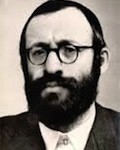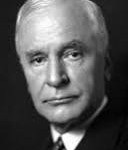Golda Meir (1898-1978), as a leader of the Palestine Jewish community, was on several occasions involved in significant episodes related to America’s response to the Holocaust.
In 1938, Meir, then known as Goldie Myerson, attended the Evian refugee conference as an observer from Palestine. At a press conference afterwards, she said that “nothing was accomplished at Evian except phraseology….There is only one thing I hope to see before I die, and that is that my people should not need expressions of sympathy any more.”
In the 1940s, Meir, as a senior official of the Histadrut labor federation, was among the Palestine Zionist leaders who received reports from Europe with detailed information about the mass murders. In July 1944, she forwarded a report from Europe about the mass murder to the Histadrut’s U.S. representative, Israel Mereminski, together with an appeal to ask U.S. officials to undertake “the bombing of Oswienzim [sic] and railway transporting Jews” to the death camp. Meir’s appeal was cosigned by another Histadrut official, Heschel Frumkin. Mereminski replied that he contacted the War Refugee Board, which in turn submitted “to competent authorities” the Meir-Frumkin request for “destruction gas chambers, crematories, and so forth.”
Shortly afterwards, the August 1944 issue of Jewish Frontier, a U.S. Labor Zionist journal with which Mereminski was closely associated, published an unsigned editorial calling for “Allied bombings of the death camps and the roads leading to them…” The Jewish Frontier editorial was the first instance in which an American Jewish organization went public with its demand for the bombing of the death camps.
Sources: Medoff, FDR and the Holocaust, pp.48-49, 178-179.











